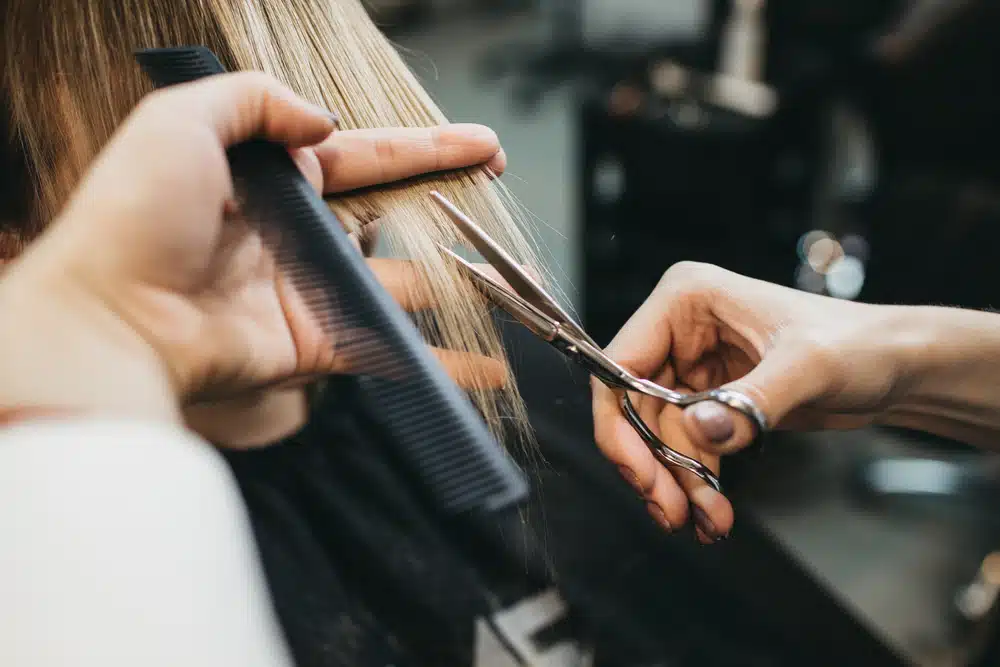 In the UK, hairdressers are subject to a number of legal requirements. These include obtaining a licence from their local authority, as well as completing a health and safety assessment. In addition, hairdressers must comply with the Hairdressing Act 1974, which regulates the use of certain chemicals and equipment. failure to comply with these legal requirements can result in fines or even imprisonment. As such, it is important for hairdressers to be aware of their legal obligations in order to avoid any penalties
In the UK, hairdressers are subject to a number of legal requirements. These include obtaining a licence from their local authority, as well as completing a health and safety assessment. In addition, hairdressers must comply with the Hairdressing Act 1974, which regulates the use of certain chemicals and equipment. failure to comply with these legal requirements can result in fines or even imprisonment. As such, it is important for hairdressers to be aware of their legal obligations in order to avoid any penalties
This article will highlight the most important legal issues that are relevant in the hairdressing industry.
What licences does a hairdressing business need?
Before you can open a hairdressing business in the UK, you will need to obtain a number of licences and permissions from the government. First, you will need to register your business with HMRC in order to obtain a VAT number. Next, you will need to apply for a premises licence from your local council. This will allow you to operate your business from a specific location.
The PPL and PRS for Music require licenses if you plan to play background music in the salon or when you place phone calls on hold. Each of these licenses is subject to an annual fee.
What legislation applies to hairdressing businesses?
Aside from some hairdressers being required to register with their local authority, there is no specific hairdressing legislation. The local government may have passed bylaws affecting hairdressers in their area, however. Byelaws affecting your area can be found by contacting your local authority.
Hairdressers should also be aware of the following legislation:
- Any potentially hazardous substance, such as peroxide, is governed by the Control of Substances Hazardous to Health (COSHH) Regulations.
- To dispose of waste chemicals, the Environmental Protection Act and its regulations (especially the Hazardous Waste Regulations) must be followed
- A regulation that restricts the use of certain chemicals in hair dyes is the Cosmetic Products Enforcement Regulations
- Occupational Health and Safety Regulations require hair dryers and straighteners to be regularly tested to ensure they are safe. This is known as PAT testing.
For more information about how the above affects your business, contact your local environmental health department.
Ear piercing products are also strictly limited in nickel content by regulations if you offer this service. Buying them from a reputable supplier is therefore recommended.
It is illegal for children under the age of 18 in the UK to use commercial sunbeds, and the maximum legal UV output for sunbed tubes is 0.3 watts per square meter. Sunbed tubes may be inspected by trading standards officers to ensure they are legal.
Employment legislation
The employment legislation must be followed by anyone who employs staff. In addition to employment policies, sickness, maternity, paternity, discrimination, discipline, grievances, dismissals, redundancies, and employment tribunals, employment legislation also regulates recruitment, employment contracts, pay, working hours, holidays, and disciplinary actions.
Health & Safety, fire
In addition to complying with workplace health and safety laws, you must also comply with fire safety laws.
Insurance for a hairdressing business
It is essential to have insurance coverage when starting a business. Your insurer will then be able to recommend what cover you need and give you an estimate of the costs after learning exactly how your business will run.
Your business might need the following types of insurance:
- Treatment cover
- Premises, premises contents and stock
- Employers’ liability
- Business interruption
- Public liability
- Motor insurance
Coversure, a specialist salon insurance provider, offers members a 20% discount on specialist salon insurance through the National Hairdressers Federation (NHF). In the members’ benefits section of the NHF website, you can find more information.
Conclusion
Hairsalon business owners need to be aware of the following legal issues, these include employment law, including the minimum wage and discrimination laws, to legal issues with music licenses, insurance, chair rental there is a lot of legislation a salon owner needs to be aware of to prevent future legal issues.
Read more: Hairdresser sector trends
Lee Jones is a seasoned Business Finance Specialist with over two decades of invaluable experience in the financial sector. With a keen eye for market trends and a passion for helping businesses thrive, Lee has become a trusted advisor to countless organizations seeking to navigate the complexities of finance.


